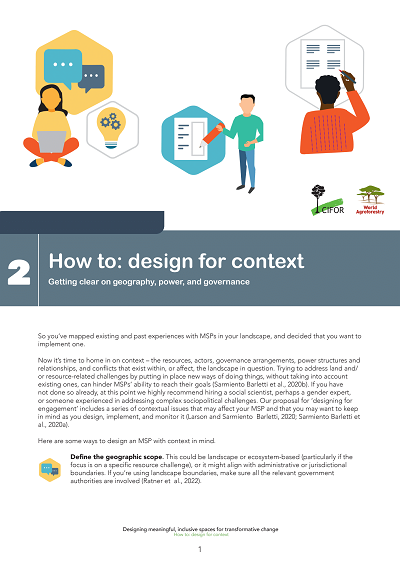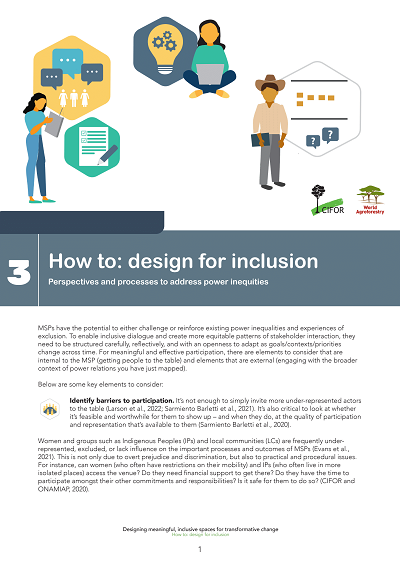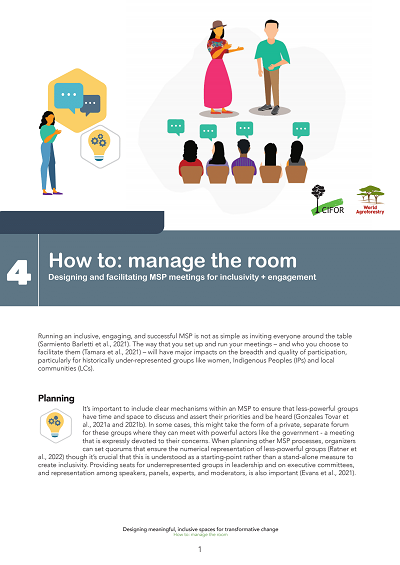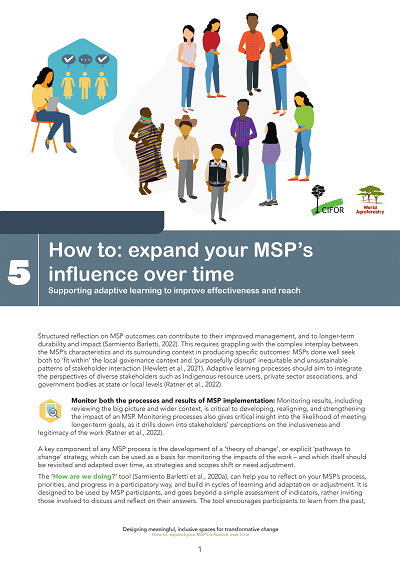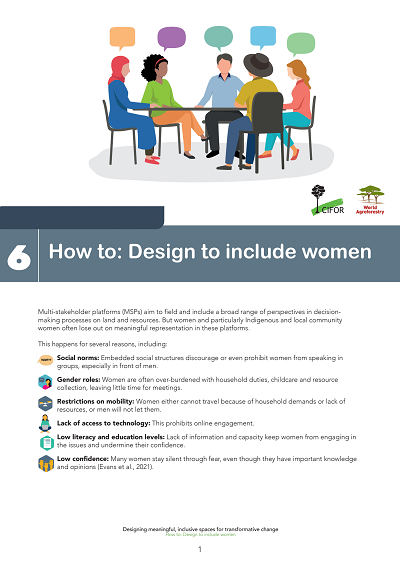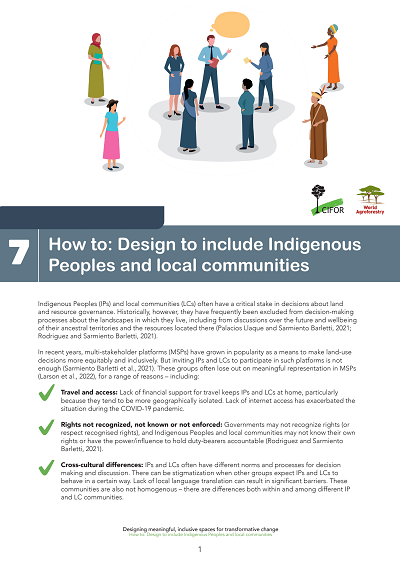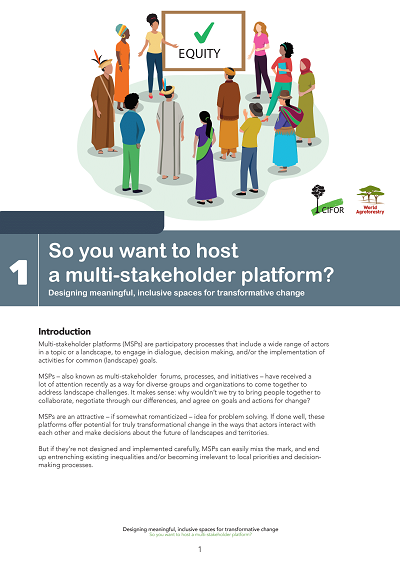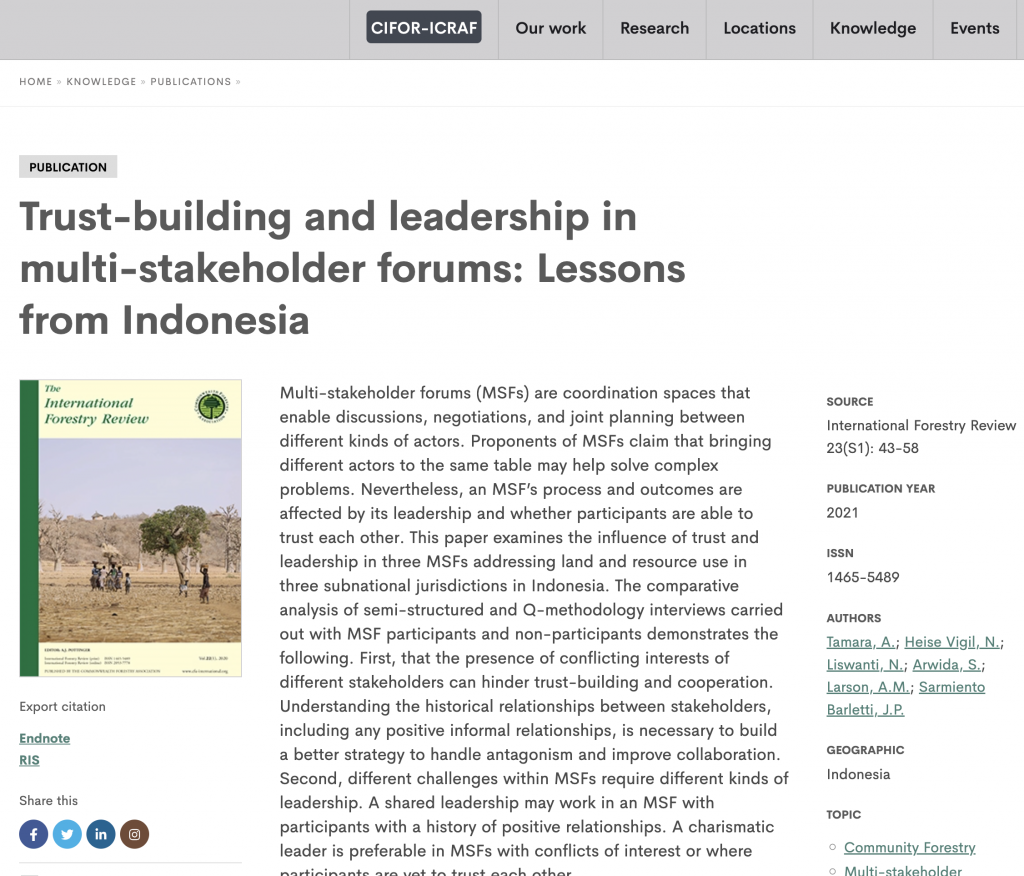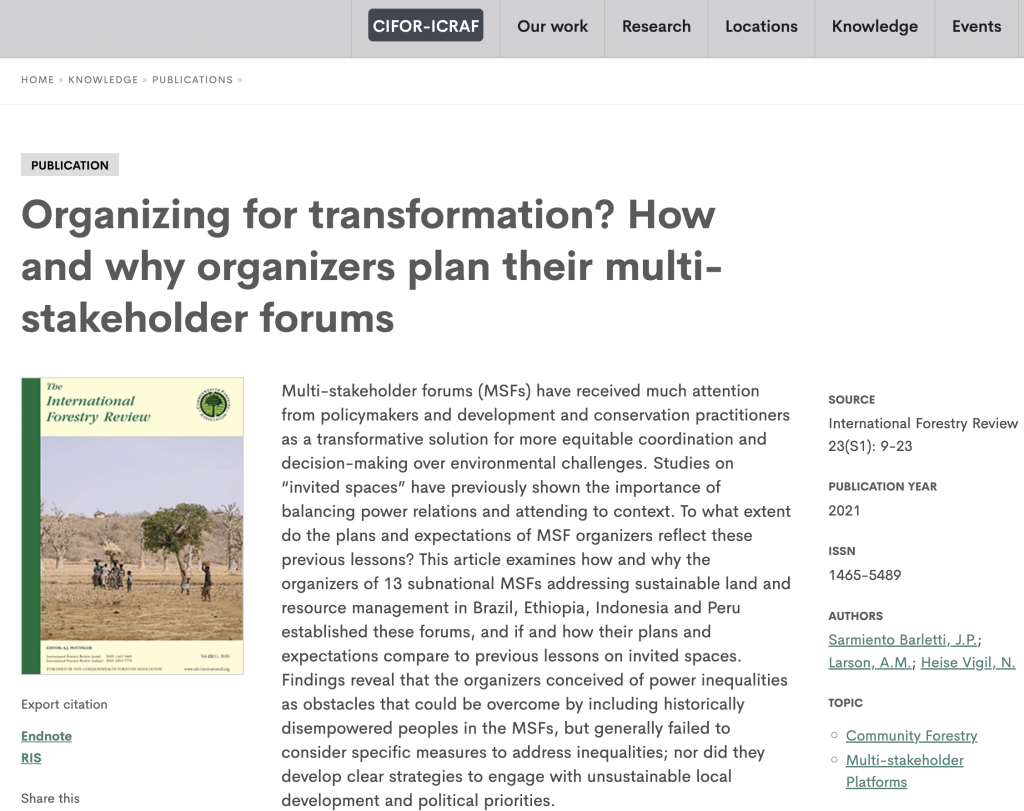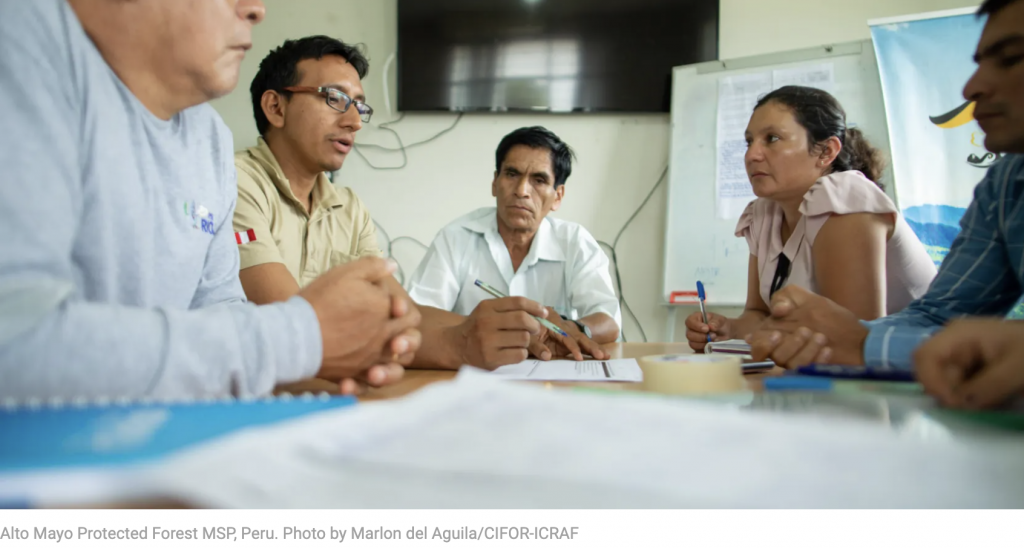
Participatory processes do not guarantee equality, as the interactions within them and in the wider contexts where they are enacted are shaped by power relations that define what kinds of actions are possible,
CIFOR-ICRAF scientists Juan Pablo Sarmiento Barletti, Anne Larson, and Nicole Heise Vigil in a 2021 study on how and why organisers plan their MSPs.
Here’s a cautionary tale for MSF convenors
In the 1990s and early 2000s – in response to calls for participatory land-use planning and concerns about deforestation – Brazil’s state governments began to carry out Ecological-Economic Zoning (ZEE in Portuguese) processes with the aim of collectively laying out land-use plans that were inclusive and sustainable. These processes were mandated to be developed and implemented using multi-stakeholder participatory mechanisms.
The two ended up with very different results, as described in this paper.
Acre and Mato Grosso are two landlocked Brazilian states, both of which contain part of the Amazonian rainforest. Acre’s ZEE map, completed in 2007, was widely hailed for advancing collective benefits and sustainability. For Mato Grosso, in contrast, the ZEE process was disastrous: it reflected deep-seated social and political conflicts, and to this day the state does not have a ZEE map, despite a number of valiant attempts by different parties to develop one. So, why did the two processes, which fell under the same federal mandate, turn out so differently?
This excellent article from CIFOR-ICRAF’s Forests News, not only outlines the different results and reasons behind them, but also provides links to really useful tools and resources to enable you to design and implement a multi-stakeholder process that’s far more like that of Acre, “widely hailed for advancing collective benefits and sustainability”, than of Mato Grosso, where “the ZEE process was disastrous: it reflected deep-seated social and political conflicts, and to this day the state does not have a ZEE map, despite a number of valiant attempts by different parties to develop one.”
… a lively living being, consistent with the identity of the populations living in the managed territory.
Acre government’s description of the map-making process after the addition of a cultural-political axis or ‘ethno-zoning’
Want to emulate that success in your own MSF?
Researchers and others at the Center for International Forestry Research and World Agroforestry (CIFOR-ICRAF), along with partners in diverse organisations and locations around the world, have been exploring how MSFs might better achieve their goals in the future, within their Governance, Equity and Wellbeing programme. They’ve found a number of conceptual and practical measures to better take these social dimensions into account.
Find out more in this short video:
Practical fact sheets designed for you
To support participants and implementers in this multifaceted process of making MSPs more equitable and effective, CIFOR-ICRAF has produced a series of simple, accessible infosheets and ‘how-to’ guides. “We often take too much for granted in MSPs,” says author Anne Larson. “Some considerations are simple – like changing where the platform is held, or adjusting seating arrangements; and some require deeper strategic thinking. Our research has unearthed a host of practical steps that convenors can take to help empower marginalised stakeholders and create lasting impact.”
Click any image below to download its factsheet pdf.
